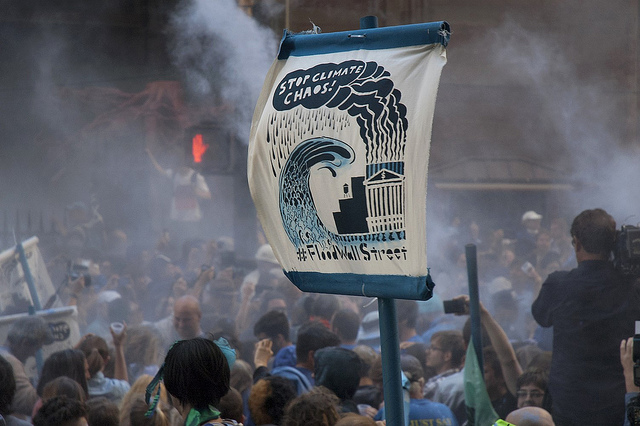Single News
Keeping climate change on the global agenda
High-level intergovernmental talks on climate change took place at the UN in New York at the end of last month. Leaders and representatives from 120 member states took part in the one-day UN climate summit on 23 September which aimed to keep the issue of climate change on the global agenda. John Stubley looks back at the event.
NEW YORK (NNA) – The talks were the biggest high-level climate change meeting since COP 15 in Copenhagen in 2009, during which governments failed to produce binding targets for emissions.
The recent talks in New York are a prelude for further intergovernmental meetings in Peru later this year and Paris in 2015, where it is hoped that political leaders will finalise agreements on emission targets.
But there are also questions about the extent to which civil society interests will genuinely be represented in any such negotiations.
Pledges
Both the US and China – the world’s two biggest polluters – have made firm pledges to continue tackling climate change.
Chinese Vice Premier Zhang Gaoli said that China’s carbon emissions would soon peak, and that it aims to make significant reductions by 2020.
“As a responsible major country, a major developing country, China will make even greater effort to address climate change and take on international responsibilities that are commensurate with our national conditions and actual capabilities,” he said.
This is the first time that China has made a strong pledge to take action on climate change.
Riding the storm
UN Secretary General Ban Ki-Moon said climate change was the greatest challenge humanity had ever faced.
“To ride this storm we need all hands on deck,” he said. “The human environmental and financial cost of climate change is fast becoming unbearable.”
Scientists and other cultural figures also attended the talks, including climate change campaigner Al Gore, actor Leonardo DiCaprio, and Chinese actress Li Bingbing.
The chair of the Intergovernmental Panel on Climate Change (IPCC), Dr Rajendra Pachauri, addressed the meeting, saying time for action on climate change was running out but that solutions existed, including renewable energy.
“We already have the means to build a better, more sustainable world,” he said. “The solutions are many and allow for continued economic development.”
Unequal representation
The number of representatives from cultural life was, however, vastly overshadowed by the number of governmental representatives.
The participation of civil society groups (not-for-profits, NGOs etc.) was effectively limited to the area outside the talks, where, in the days leading up to the summit, more than 500,000 people marched in around 2,600 events around the world.
On the day before the summit, more than 100 people were arrested in a climate change protest called Flood Wall Street, which aimed to highlight the role that businesses and corporations play in fuelling climate change.
Official representatives from business were not present at the talks, though many governments, such as China, play a substantial role in economic life. Likewise, businesses play a key role in the decision-making processes of many governments.
Economic interests were, therefore, present at the talks, albeit inconspicuously and unofficially.
Tri-sector partnerships
When it comes to the finalising of agreements in Paris or elsewhere, the formal process for the talks means that, for the most part, cultural representatives will either be left on the podium or outside the doors, while economic interests will be carried into the negotiation room by political leaders.
This is far from the ideal, conscious, tri-sector partnerships – including government, business and civil society – called for by process and governance experts such as Right Livelihood Award (Alternative Nobel Prize) and UN Environmental Global 500 Award winner Nicanor Perlas, and Massachusetts Institute of Technology (MIT) Sloan School of Management senior lecturer Otto Scharmer.
If all sectors of society are not represented in equal measure and with mutual respect in a forum that aims to preserve that which supports the existence of all human beings – namely, the earth – then agreements that favour certain sectors of society over others can continue to be expected.
END/nna/js
Item: 141005-01EN Date: 5 October 2014
Copyright 2014 News Network Anthroposophy Limited. All rights reserved.

